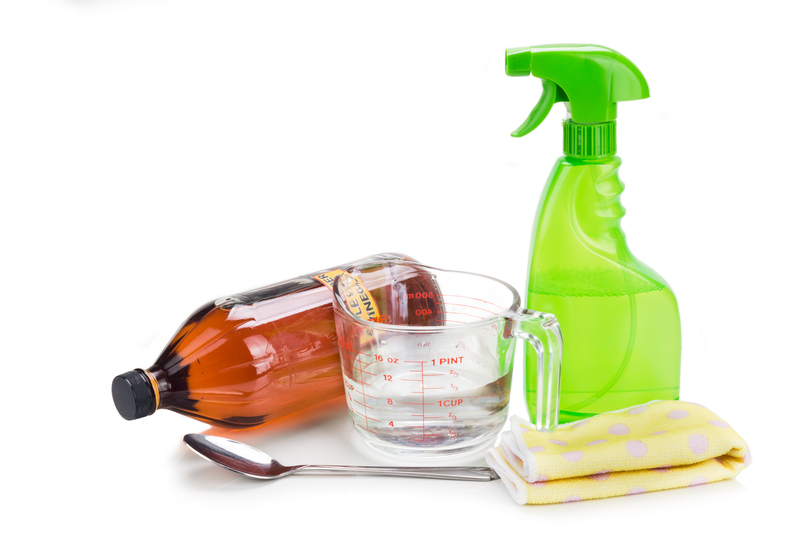Eco-friendly Cleaning Tips
Posted on 03/10/2024
As the urgency to address environmental issues grows, many people are looking for ways to make their lives more eco-friendly. One significant change you can implement is adopting environmentally friendly cleaning practices in your home. These tips not only help conserve resources but also reduce exposure to harmful chemicals. Here's a comprehensive guide to eco-friendly cleaning tips that can make your home cleaner and greener.
The Importance of Eco-Friendly Cleaning
Traditional cleaning products often contain a variety of chemicals that can be harmful to your health and the environment. Switching to eco-friendly cleaning methods can help reduce the release of these harmful substances into the air and waterways. Moreover, making these changes can contribute to long-term sustainability and well-being.

Reduce, Reuse, and Recycle
Before diving into specific cleaning tips, it's essential to remember the core principles of an eco-friendly lifestyle: reduce, reuse, and recycle. Minimize waste by purchasing products with minimal packaging, reuse containers, and recycle materials whenever possible.
Opt for Natural Cleaning Products
Many natural ingredients can be used as effective cleaning agents, offering a safer alternative to conventional products. Common natural cleaners include:
- Vinegar: Effective for removing mineral deposits and grease stains.
- Baking Soda: Excellent for scrubbing surfaces and deodorizing areas.
- Lemon Juice: Useful for cutting through grime and adding a fresh scent.
- Hydrogen Peroxide: A natural bleach that can disinfect without the harsh chemicals found in commercial bleach.
Create Your DIY Cleaners
Making your own cleaning solutions is a simple and cost-effective way to ensure they are environmentally friendly. Here are a few recipes to get you started:
All-Purpose Cleaner
Mix equal parts of water and vinegar in a spray bottle. Add a few drops of essential oil for fragrance. This solution is perfect for cleaning countertops, windows, and other surfaces.
Bathroom Cleaner
Combine half a cup of baking soda with liquid soap until it forms a paste. Use this mixture to clean sinks, tubs, and tiles.
Glass Cleaner
Mix 1 cup of water, 1 cup of vinegar, and a few drops of lemon oil in a spray bottle. Spray on glass surfaces and wipe with a microfiber cloth for a streak-free shine.
Choose Eco-Friendly Tools
In addition to using natural cleaners, incorporating eco-friendly cleaning tools can further reduce your environmental impact. Consider the following options:
- Reusable Cleaning Cloths: Swap paper towels for reusable cloths made from natural fibers like cotton or bamboo.
- Microfiber Cloths: Efficient at picking up dust and dirt, reducing the need for chemical cleaners.
- Bamboo Brushes: Sustainable alternatives to plastic brushes for scrubbing surfaces.
Practice Water Conservation
Cleaning often involves a significant amount of water usage, so it's essential to adopt water-saving habits. Here are some tips:
- Use Buckets: Instead of running water continuously, fill a bucket for tasks like mopping floors or washing windows.
- Fix Leaks: Ensure all faucets and pipes are leak-free to prevent water wastage.
- Efficient Washing Machines: Use front-loading washing machines that use less water and energy than top-loaders.
Clean Green while Staying Clean
Using personal safety practices that are also eco-friendly is crucial. For example, choosing biodegradable or reusable gloves can make a difference. Ensure that these products are made from natural materials that will break down without harming the environment.
Save Energy
Besides water, cleaning can also consume energy. To be more eco-friendly in this respect:
- Air Dry: Whenever possible, air-dry dishes and laundry instead of using a dryer.
- Cold Water Wash: Use cold water for laundry to save energy and prolong the life of your clothes.
- Energy-Efficient Appliances: Invest in appliances that are rated for energy efficiency.
Recycle Old Cleaning Containers
Many commercial cleaning products come in plastic containers, which contribute to landfill waste. Reusing or recycling these containers can significantly reduce your environmental footprint. When buying new products, opt for those with recyclable packaging.
Opt for Eco-Friendly Commercial Products
If making your own cleaning products isn't feasible, various eco-friendly commercial options do exist. Look for cleaning products labeled as biodegradable, non-toxic, or certified by environmental organizations.

Include Indoor Plants
Indoor plants can naturally purify the air, making your home healthier. Some plants to consider include:
- Spider Plant: Known for its air-purifying abilities.
- Snake Plant: Easy to care for and effective at removing toxins.
- Peace Lily: Not only purifies the air but also has beautiful blooms.
Conclusion
Adopting eco-friendly cleaning methods is a significant step towards a more sustainable lifestyle. By making small but impactful changes--such as using natural cleaners, conserving water, and choosing recyclable products--you can make your home a cleaner, greener place. These eco-friendly cleaning tips are not only better for the environment but also safer for you and your family.
Remember, every little effort counts. Start with a few changes and gradually integrate more eco-friendly practices into your cleaning routine. Your actions can contribute to a healthier planet for current and future generations.
Latest Posts
Using Toothpaste to Keep Your Iron Plate Clean
Cleaning Beverage Spills from Carpets









